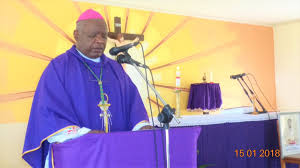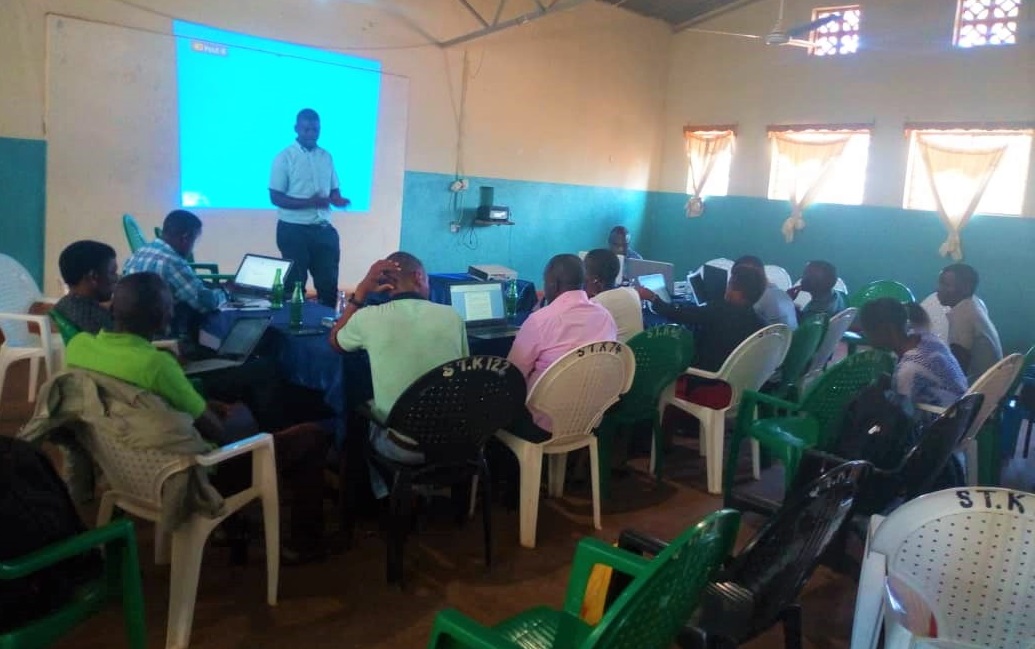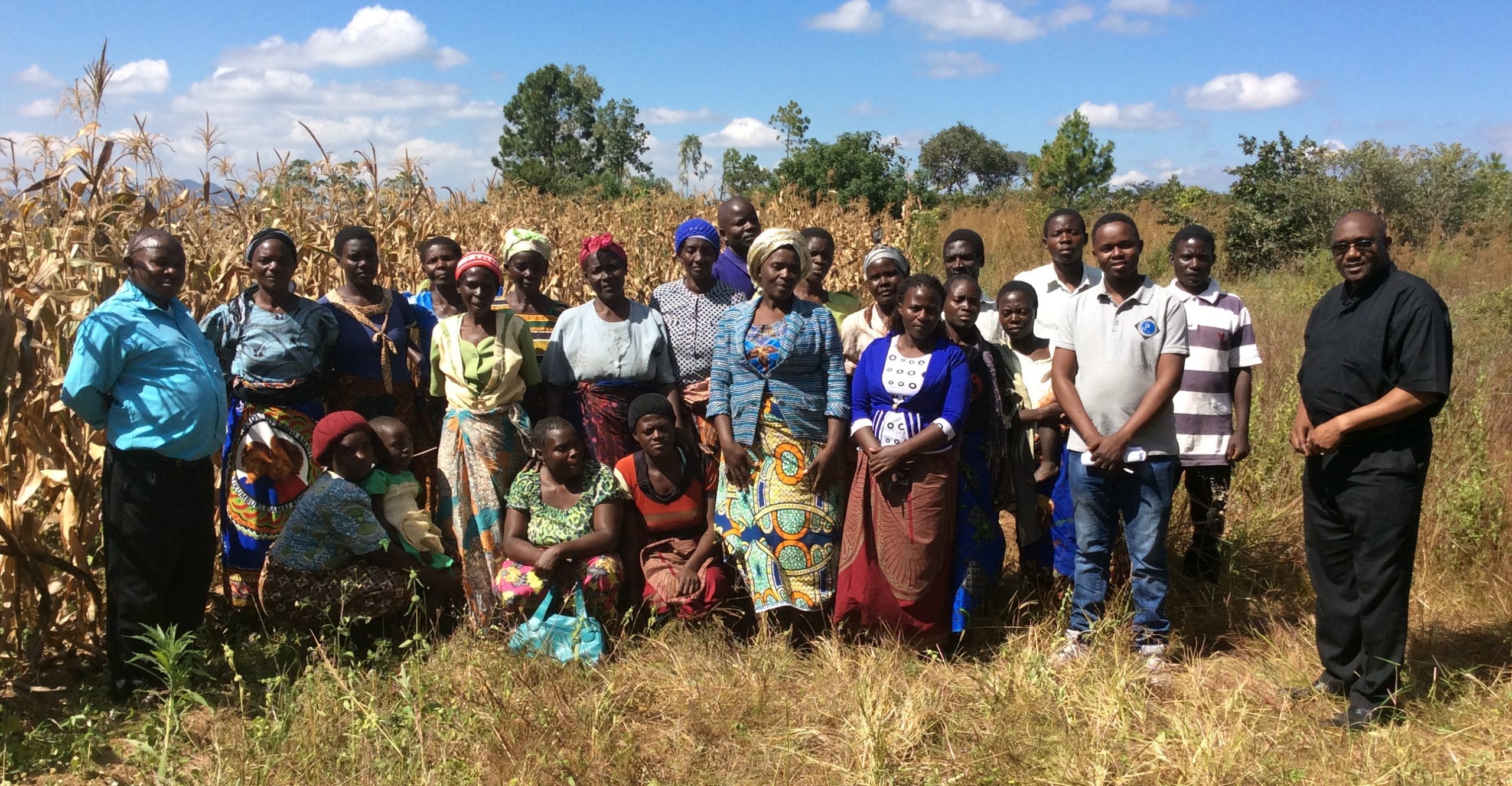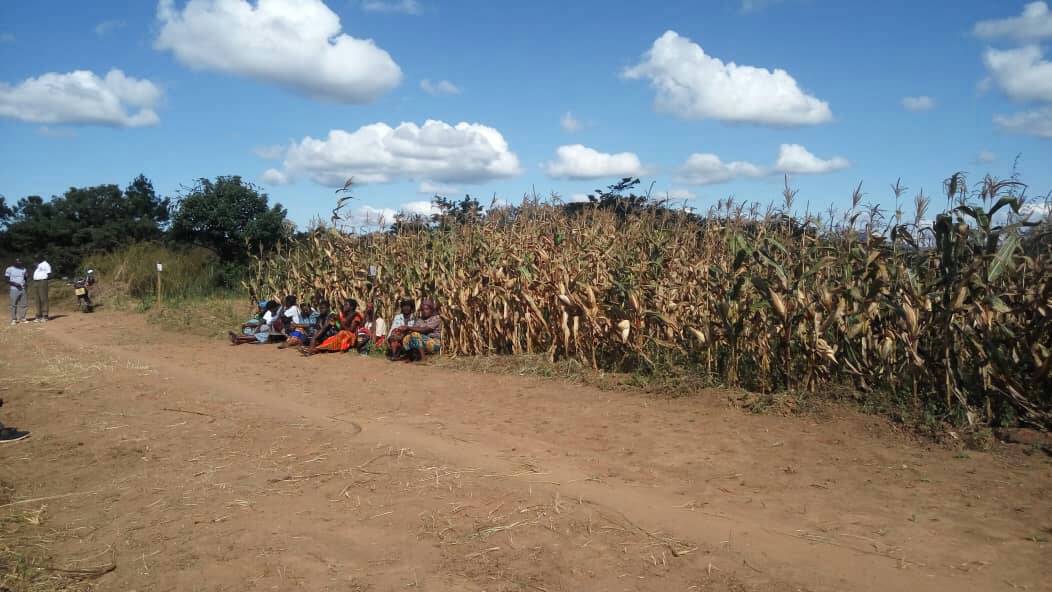Welcome to Karonga Diocese Website
her is what will be written maybe
Chitipa Deanery Children Shine in Diocesan Final Quiz and Choir Competition
By Benjamin Msowoya
On 2nd June 2018, the Diocese of Karonga saw Sunday school children from Chitipa Deanery of the Diocese scooping both awards during the quiz and choir competitions that took place at St Joseph the Worker Cathedral.
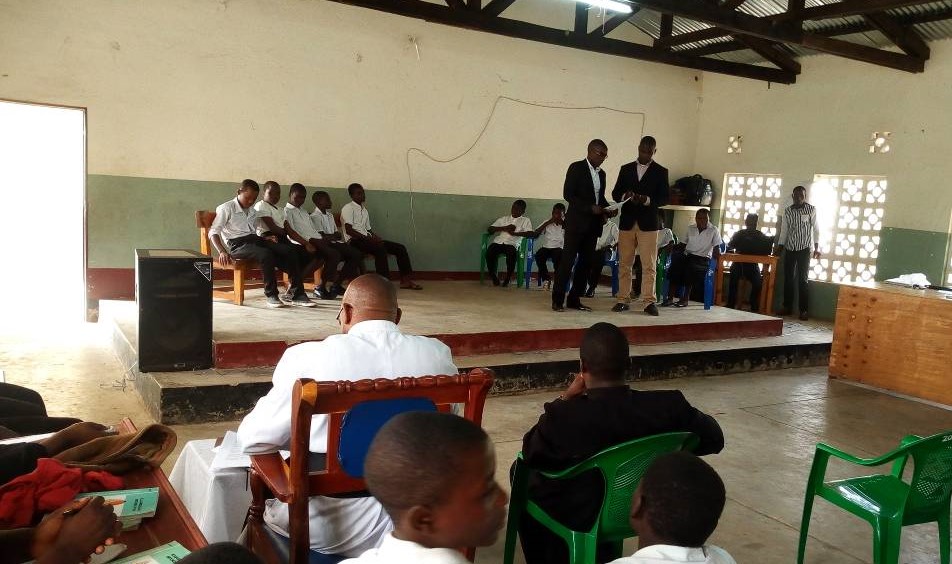
The competition took place in two categories, quiz and choir. In the quiz category, the winning team of St Michael’s Centre represented Chitipa Deanery Sunday School children. The children from St Michael’s Parish faced children from St Joseph the Worker Centre (representing Karonga Deanery children).
St Michael’s Centre children scored 100% during the quiz by getting correctly all the possible 20 points for their team. St Joseph the Worker Centre children scored 85% during the quiz by getting 17 of the points 20 points for their team. It was very encouraging to see the children from both teams giving precise and correct answers as stipulated by the Tumbuka Catechism Kasambizgeni Mitundu Yose Book I of the Diocese.
In the choir category, children of St Matthias Mulumba Parish Centre (Mughese), who represented Chitipa Deanery, won position one for their quality singing. These competed against their counter parts from St Joseph the Worker (Vilaure), who represented Karonga Deanery. The competition in the choir category was also tight as Mughese children on position one got 10 of the 12 possible points while the runners-up (Vilaure) got 9 of the possible 12 points.
The winning teams got prizes and certificates of recognition from the Vicar General, who is also the Chairperson of the Pastoral Commission of the Diocese of Karonga. Also present during the event were Fr Matthwes Simwera (the PMS Director of the Diocese), Fr Bernard Silungwe (Parish Priest of St Matthias Mulumba) and Fr. Cosmas Mwanjabala.
Apart from the many people from St Joseph the Worker, who came to watch the event, the event brought together many Sunday school children from various parishes. Among other groups of children that participated in the event were children from the following places: Chuba Prayer Centre (St Mathias Mulumba Parish), Wovwe Prayer Centre (St Anne’s Parish), St Mary’s Parish Centre and St Peter’s Prayer Centre (St Joseph the Worker Parish).
The children had morning Mass together, ate together and interacted from Saturday evening up to Sunday morning. On Saturday afternoon, they visited several places within Karonga; Tuntufye Radio Station Premises, Bambo Zutu House (Bishop’s House), St Mary’s Karonga Girls Secondary School, and the lake (for the sake of children from Chitipa Deanery who saw the lake for the first time).
In his remarks, the Vicar General congratulated the winners from Chitipa Deanery and commended all the participants for their impressive effort. He thanked all the Instructors of Sunday School Children for their untiring efforts in sharing their faith with the Sunday school children in the Diocese.
He said that what people had witnessed during the final competition among the children from the two deaneries, that makeup Karonga Diocese, was just one of the indicators that the children have great capacity and potential; they can perform wonders if given a chance.
He pledged that the Bishop and his office will continue supporting all their efforts to ensure that they continue forming, in faith, the children in the Diocese. He also urged the children to continue actively participating in all planned programmes and activities for children.
The Pastoral Commission organises such events every year through the Sunday School Desk which oversees the Diocese’s ministry towards children and the youth. The competitions start at prayer centre level and go up to outstation, zone, parish, deanery and diocese levels. It is the prayer centre that wins from the lower level that goes up through all the higher levels. The children involved are Sunday school children who are between 5 and 13 years of age. With the completion of this year’s competition. Prayer centres will now start preparing for 2019 competitions beginning this coming July 2018.
Caritas Commission Holds Review and Planning Meeting
By Leah Nyondo
On Monday this week, the Caritas Commission, which is the social development arm, of the Diocese of Karonga began a three day planning and review meeting at St Kizito Conference Centre in Chitipa District.
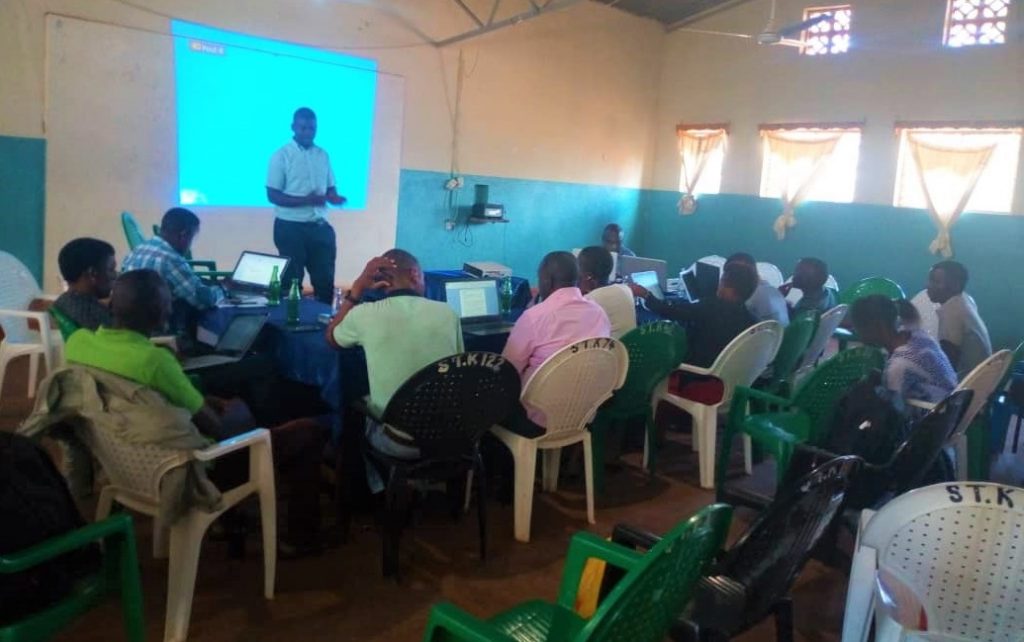
The meeting was attended by all officers under the commission which included desk officers, project officers, field officers and interns of the desks forming Caritas Commission namely Education, Health, Development and Justice and Peace.
The purpose of the meeting was to review all the projects that are being carried out by the Caritas Commission and map the way forward.
In his opening remarks, the Caritas Secretary, Mr Mwawi Shaba, encouraged the participants to utilize the opportunity and be as open as possible to make contributions that will enable the commission implement projects successfully. The Caritas Secretary further emphasized the importance of the planning meeting saying it will help projects meet their objectives.
The meeting is expected to end on Wednesday 6th June, 2018. Officers are expected to come up with implementation plans for the projects.
Monsignor Denis Chitete Tours Projects Being Implemented by the Diocese of Karonga
By Deodatus Muriya
The Vicar General of the Diocese of Karonga Monsignor Denis Chitete conducted a monitoring tour in the Diocese to appreciate the progress being made in the various projects being implemented by the Diocese.
The monitoring tour which started on 29th May, 2018 and ended on 1st June, 2018 saw the Vicar General visiting Caritas Commission and Finance, Investment and Administration project sites in Chitipa.

In the area of traditional authority Mwenewenya, the Monsignor Chitete visited Chisenga Clinic, which is yet to be opened. The clinic will be managed Lusubilo Orphan Care an establishment under the Diocese of Karonga. Once opened, the clinic will serve community members in the area who travel about 51 Kilometers, a journey which lasts about two hours due to poor road condition, to the District Hospital at Chitipa Boma. The clinic will offer out-patient and maternity services at its inception. The Vicar General expressed satisfaction with the progress of work being done to open the clinic.
The Vicar General also visited Chisenga Radio Listening Club under Promotion of High Quality, Accountable and Responsive Public Health Service Delivery in Karonga and Chitipa districts. The project is been funded by OSISA and is implemented by Justice and Peace Desk of Karonga Diocese. The RLCs play a crucial role in the project by taking action on health rights concerns of their communities through amplifying issues and demands through the radio. The Vicar general encouraged the members to continue doing activities which aim at building team spirit such as Village Saving and Loans (VSL).
Still in Chisenga, Monsignor Chitete interacted with farmers’ group in Chisenga where the Integrated Rural Development Project set up demonstration plots on the use of sustainable agricultural practices in crop production and soil improvement. The technologies promoted are use of compost and liquid manure, use of leguminous crops for interplanting, use of crop mulching for improving water conservation and soil fertility and practicing crop rotation for soil improvement and pest and diseases control.
The farmers visited expressed satisfaction with the technologies as one way of improving crop production and income diversification. The demo plots act as a school for learning and farmers are encouraged to implement the technologies of their choice in their respective fields. The Vicar General encouraged the farmers to transfer what they have learnt to their own fields in order to achieve the aim of the demonstration plots.

During the same monitoring tour, the Vicar General interacted with CCJP Paralegal Volunteers who were undergoing going a two day training at Lufita. This is under the Women’s and Girls’ Rights Project which is being supported by Misereor – Germany. The Vicar Genearal graced the closing ceremony.
The Vicar also toured the two farms where he was assured that through them the diocese will be able to generate resources for the Diocese. The Diocese through its investments section is running Misuku Coffee Farm and Chipunga Farm Limited in Nkhatabay. At Chipunga Farm there is coffee, fruits, macadamia, timber but also vegetables.
At Misuku Coffee Farm there is coffee and bananas. Coffee from Misuku Farm passed quality assessment by German coffee experts with triple ‘A’ (AAA); meaning it qualified for German market as this is the highest rank coffee can get.
Yields from Crops Grown Using SAPs Excite Small Scale Farmers in Chitipa District
By Elijah Banda
The Development Desk of Karonga Diocese is promoting Sustainable Agricultural Practices (SAPs) among small scale farmers in order to increase crop production under Integrated Rural Development Project.
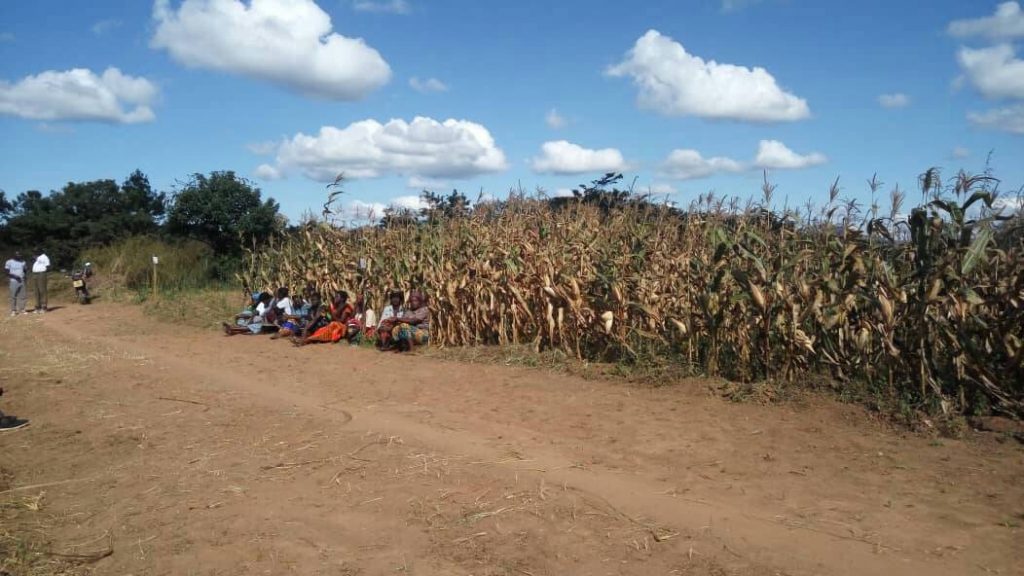
The project is being implemented in four traditional authorities namely, Mwenewenya, Mwenemisuku, and Mwabulambiya in Chitipa and Kyungu in Karonga District. The use of sustainable agricultural practices is helping increase resilience of small scale farmers against the impact of climate change. The technologies promoted are the use of compost and liquid manure, use of mulching for water conservation and soil improvement, pit planting, use of leguminous plants for inter cropping and crop rotation.
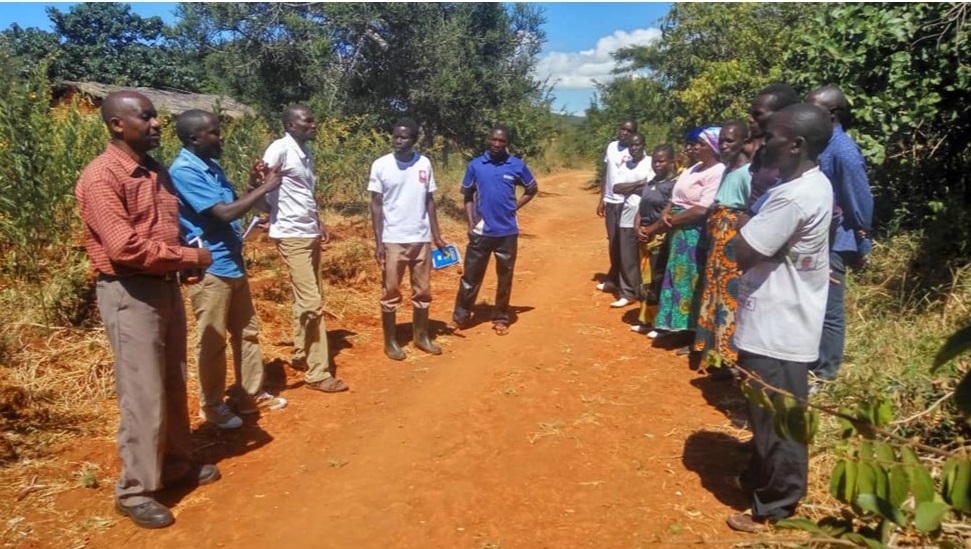
In 2017-18 farming season the project set up demonstration plots in all the four project sites in order to train farmers in these technologies and scale up its adoption. On 24th May, 2018, the Project Officer and officials from Chitipa District Agriculture Development Office (DADO) visited a number of demonstration plots under the project to appreciate how the demonstration plots performed and what farmers learned.
According to what the small scale farmers observed in the demonstration plots, the use of sustainable agricultural practices can help improve yields and therefore crop production. The plots which were applied with manure and planting was done in pits did very well even if the rains were not adequate as they were punctuated by dry spells.
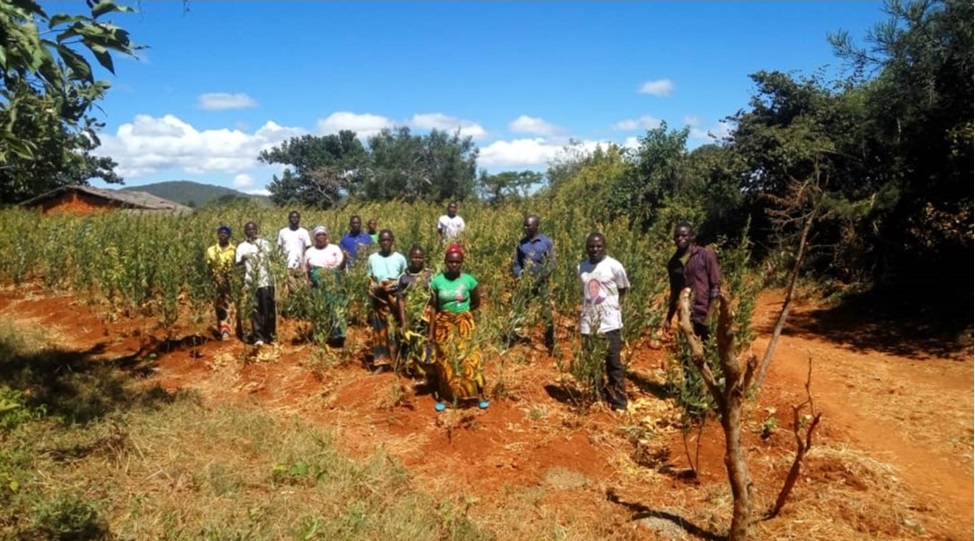
Small scale farmers also observed that the use of sustainable agricultural practices, e.g. manure, reduce the cost of production as less fertilizers were applied but still the maize plots did well in terms of yields. Most of the small farmers have promised to practice three or more technologies promoted by the project on at least a quarter acre during the next growing season.
In his remarks after visiting Takondwa club in Chisenga, the District Crops Officer, L. Mziza, expressed happiness with the performance of all the stands in demonstration plots. He was very much encouraged with the way the maize stand applied with manure and planted in pits performed. He reiterated the fact that the use of manure in maize production, and also in other crops, can reduce the production cost as farmers can apply less amount or no fertilizers at all.
“Farmers can get more profit from maize through use of manure since fertilizer is expensive apart from improving the soil which has lost vital nutrients,” He said.
Speaking on behalf of the farmers gathered at the demonstration site, one of the lead farmers, Lucy Sichali thanked the Development Desk of the Diocese of Karonga for the project which she said is timely to address the critical problem of under production of the staple food. She encouraged fellow farmers to put into practice the technologies promoted on a large scale in their respective fields. Karonga and Chitipa Integrated Rural Development Project is a three year project (2017-2020) funded by MISEREOR to the tune of MK 285 million.
Karonga CSOs to Advocate for the Adoption of FPIC Policy
By Vincent Bwinga (Justice and Peace)
Civil Society Organizations in Karonga have expressed their commitment to advocate for an enabling domestic policy and legal framework that will see the enforcement and adoption of Free Prior and Informed Consent (FPIC) policy for community rights in Extractive Industries.
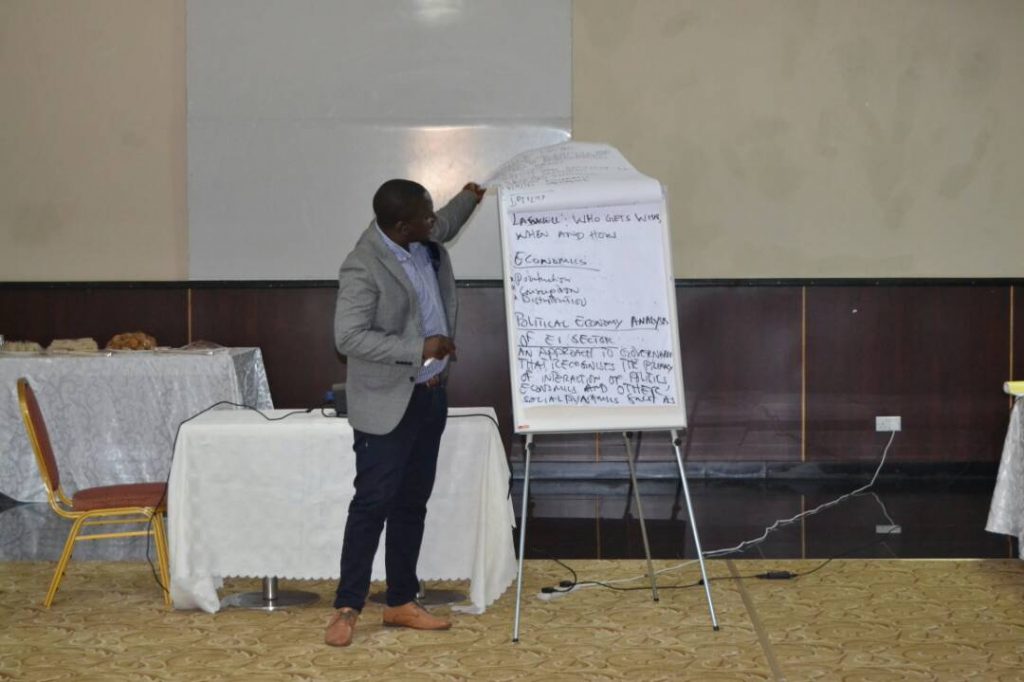
The CSOs made this commitment during a three day long training organized by the Justice and Peace Desk of the Diocese of Karonga at Beach Chamber in Karomga.
The training highlighted that lack of enabling domestic policy/ legal environment to enforce FPIC in Extractive Industries leaves communities at the mercy of investors in the sector. This gap gives investors freedom to disregard concerns of communities where they operate in. Communities are rarely engaged and as such community members do not benefit from the natural resources extracted from their own villages.
Further, the training stressed that the mining database is inaccessible putting transparency and accountability in the sector into question. For instance, there are over five active mining licenses and more than ten prospective licenses in Karonga but people do not have access to this information and are not engaged I decision making so that they also benefit from mining.
The CSOs, therefore, resolved to advocate for consolidated database of mining licenses and enabling domestic policy/ legal environment for enforcing FPIC through a position paper and other forums so that community members may also start benefiting from the sector.
Speaking during the training, Reverend Father Leslie Mtekateka said Civil Society Organizations in Karonga have spoken enough on Extractive Industries with little success as communities are yet to benefit from their natural resources.
Among other factors, he said this is because community members themselves say nothing in the midst of exploitative mining activities. Father Mtekateka, therefore, recommended more capacity building for traditional leaders and community members to demand meaningful engagement in decision making.
Fifteen Civil Society Organizations working in Karonga attended training. The training was coordinated by Justice and Peace of Karonga Diocese with financial support from Australian Aid through Oxfam in Malawi on “Inclusive and Transformative Extractive Industries in Southern Africa Project” which is being implemented in T/A Kyungu and Kilupla in Karonga.
Youth of Karonga and Chitipa Call for a Holistic Approach to Health Challenges
By Louis Nkhata
The Justice and Peace Desk of Karonga Diocese with the project coined “Promotion of High Quality, Accountable and Responsive Health Service Delivery” with funding from OSISA ( Open Society Initiative for Southern Africa) held a youth conference on 2nd June, 2018.
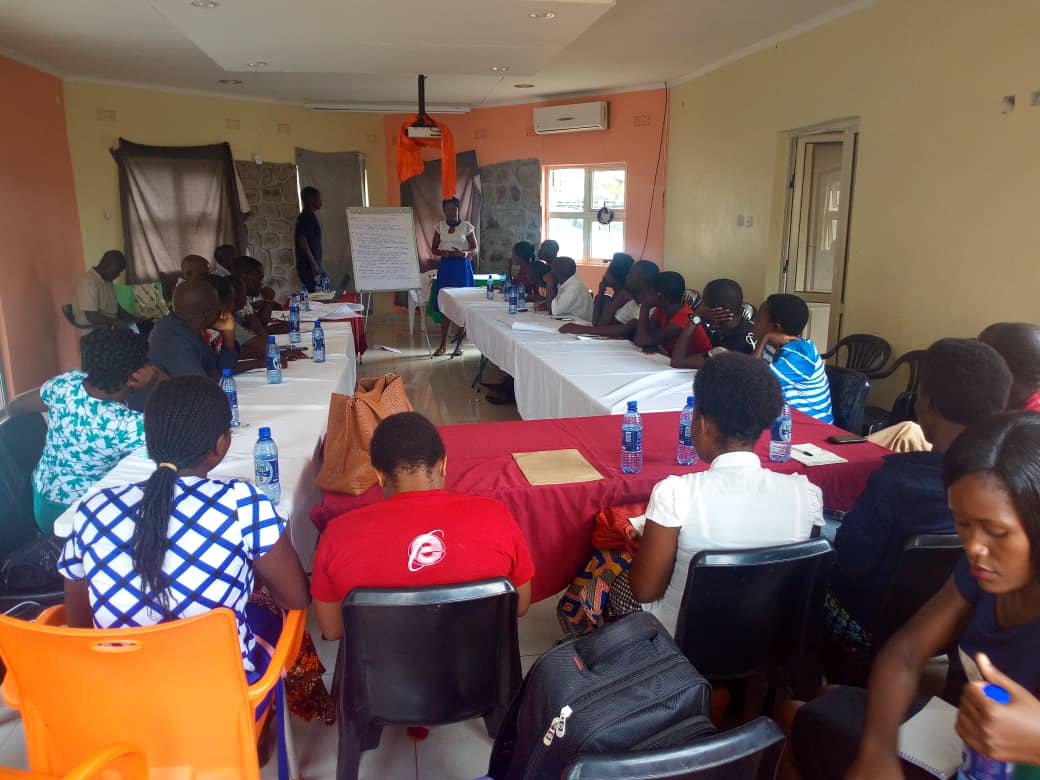
The youth conference came at a time when out of school youth have limited platforms to participate and contribute to improving public health service delivery. The youth conference was attended by youth from Karonga and Chitipa districts covering all 10 Traditional Authorities. The youth appreciated the services provided by the numerous health service providers. However, they had a few lamentations for the public health service delivery.
The youth made an observation that flow of information from health personnel and local development committees is slow and limited. The youth recalled that in most instances, they are not given the opportunity to hold leadership positions within development committees.
For instance, the youth observed that there is only one young person in both districts who is a Vice Chairperson for Health Facility Advisory Committee (HFAC) in Nthalire. When choosing HFAC, the youth are not given a chance to participate as such the youth always remain behind. The youth expressed that because they do not have representatives in such committees, their demands are not addressed and the linkage for information from development committees to the youth is weak. The issue becomes a problem as the youth do not have the right to information on public health service delivery. However, it was expressed by other concerned citizens that “even if the youth are deliberately put in the aforementioned committees the youth mostly become rubberstamping scapegoats”.
Limited capacity of health service providers in addressing issues particular to the youth has led to more of generic approach. In other words, “one size fits all” in treating every one despite varied social differences which means different health needs. The youth thought it wise for systems to be put in place to deliberately provide proactive and reactive services to particularly address their health problems. The youth demanded that if things were to improve, more youth should be capacitated in life skills to resolve their problems.
The youth demanded that the community should be made aware that representative democracy demands that each and every committee should reflect the demographic patterns of the communities as such the youth should be deliberately included to improve the flow of information which is a precondition for informed participation.
Further, there should be more efforts from the NGOs and the District Health Office (DHO) to build the capacity of health personnel and the youth to specifically address inadequacies accelerating youth problems within the public health service delivery. In addition, the youth demanded that the DHOs of Karonga and Chitipa should strengthen their disciplinary mechanisms so that those who do not adhere to their professional oath should be answerable.

